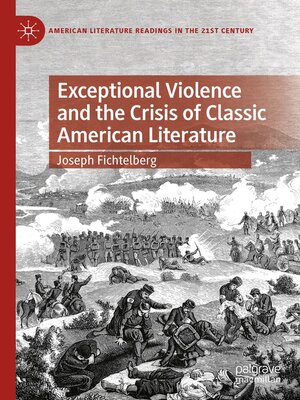Exceptional Violence and the Crisis of Classic American Literature
ebook ∣ American Literature Readings in the 21st Century
By Joseph Fichtelberg

Sign up to save your library
With an OverDrive account, you can save your favorite libraries for at-a-glance information about availability. Find out more about OverDrive accounts.
Find this title in Libby, the library reading app by OverDrive.



Search for a digital library with this title
Title found at these libraries:
| Library Name | Distance |
|---|---|
| Loading... |
This book is an interdisciplinary study of antebellum American literature and the problem of political emergency. Arguing that the United States endured sustained conflicts over the nature and operation of sovereignty in the unsettled era from the Founding to the Civil War, the book presents two forms of governance: local and regional control, and national governance. The period's states of exception arose from these clashing imperatives, creating contests over land, finance, and, above all, slavery, that drove national politics. Extensively employing the political and cultural insights of Walter Benjamin, this book surveys antebellum American writers to understand how they situated themselves and their work in relation to these episodes, specifically focusing on the experience of violence. Exploring the work of Edgar Allan Poe, ex-slave narrators like Moses Roper and Henry Bibb, Herman Melville and Emily Dickinson, the book applies some central aspects of Walter Benjamin's literary and cultural criticism to the deep investment in pain in antebellum politics and culture.







